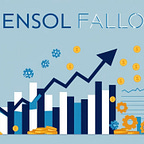Gensol Engineering, a key player in the renewable energy and electric vehicle (EV) sectors, has recently faced significant financial and operational hurdles. From credit downgrades to liquidity constraints, governance concerns, and regulatory scrutiny, the company is at a crossroads. This newsletter provides an in-depth analysis of Gensol's challenges, risks, and future prospects.
Recent Negative Developments
Financial Downgrades and Liquidity Concerns
Gensol's credit ratings have been downgraded by CARE Ratings and ICRA due to liquidity mismatches and concerns over financial governance.
The company has struggled with high debt levels, which have impacted profitability despite strong revenue growth.
Negative cash flow has raised questions about Gensol’s financial sustainability.
There have been allegations of falsified debt servicing documents, further intensifying corporate governance concerns.
Operational Setbacks
Delays in project execution, particularly in the solar EPC business, have impacted revenue growth. Extended rainfall and land acquisition challenges pushed revenue recognition to future quarters.
The launch of Gensol’s first electric vehicle, the Ezio, has been delayed from Q2 FY25 to Q1 FY26, raising concerns over the company's ability to meet its ambitious EV growth plans.
The company has been facing challenges in managing working capital, particularly in its EV leasing business.
Stock Price Volatility and Market Sentiment
Following the rating downgrades, Gensol’s stock price plummeted by over 35% in a short period, reflecting investor concerns.
The pledged promoter stake (81.7% as of December 2024) has added further risk, as a declining stock price increases the likelihood of margin calls and forced selling.
Regulatory and Governance Issues
Promoter Pledging and Share Sales
Promoters sold 9 lakh shares (2.37% of the company’s equity) to unlock liquidity, with plans to reinvest the proceeds in a warrant subscription round scheduled for June 2024.
Despite the equity sale, promoters continue to hold a 59.70% controlling stake in the company.
Allegations and Compliance Concerns
Government authorities have frozen shares held by Zenith Multi Trading, a company linked to Gensol, due to alleged involvement in hawala transactions.
While Gensol has not been directly implicated, its association with such entities has raised red flags among investors.
A leadership transition is underway, with a new CFO taking charge amid ongoing financial scrutiny.
Blue Smart Co’s Association with Gensol and Its Impact
Gensol has been closely associated with Blue Smart Co, a company focused on electric mobility and ride-hailing services powered by EVs.
The partnership with Blue Smart Co was expected to boost Gensol’s presence in the EV sector by leveraging synergies in manufacturing and leasing electric vehicles.
However, recent financial concerns, project execution delays, and governance issues have impacted investor sentiment regarding Gensol’s ability to capitalize on this partnership effectively.
The delay in the launch of the Ezio EV and financial stress within Gensol could pose challenges for Blue Smart Co’s fleet expansion plans, potentially affecting both companies.
Investors are closely monitoring how Gensol manages its liquidity and project execution to ensure that the association with Blue Smart Co remains viable in the long term.
Risks Associated with Gensol
High Debt Levels: Despite asset sales and efforts to deleverage, the company's net debt-to-equity ratio remains at a concerning 1.4x as of September 2024.
Execution Risks: Delays in land acquisition, project execution, and revenue recognition continue to hinder growth.
EV Business Challenges: The profitability of the EV leasing business remains uncertain, with high depreciation costs and delayed launches impacting margins.
Corporate Governance Issues: Allegations of falsified debt servicing documents and frozen shares tied to questionable entities have put investor confidence at risk.
Regulatory Scrutiny: Any potential adverse regulatory action could further impact Gensol’s business operations.
Breakout on Chart
The Way Forward: Survival and Growth Strategies
Debt Reduction and Financial Stability
Gensol has announced a debt reduction strategy, including asset divestments and capital infusion, to improve liquidity.
The proceeds from promoter stake sales and the upcoming warrant subscription round will be used to strengthen the balance sheet.
Operational Improvements
Streamlining project execution and addressing land acquisition delays will be key to restoring revenue growth.
The company is focusing on improving cash flow management and reducing working capital pressure in its solar EPC and EV businesses.
Strengthening Governance and Transparency
Addressing corporate governance concerns through enhanced financial disclosures and compliance measures is essential to restoring investor trust.
The leadership transition, including a new CFO, is expected to bring improved financial oversight.
Diversification and Long-Term Growth
Gensol is expanding into high-growth areas such as Battery Energy Storage Systems (BESS) and EV manufacturing, which could provide long-term revenue streams.
Strategic partnerships with global players in the renewable energy and EV sectors may help accelerate growth.
Conclusion
Gensol Engineering is at a pivotal moment, navigating financial stress, governance concerns, and operational challenges. While the company has taken steps to improve liquidity, reduce debt, and expand into high-growth sectors, uncertainties remain. Its success in overcoming these hurdles will depend on its ability to execute projects efficiently, maintain financial discipline, and restore investor confidence.
Disclaimer
This newsletter is for informational purposes only and should not be considered as financial or investment advice. Investors are advised to conduct their own due diligence or consult financial professionals before making any investment decisions.















